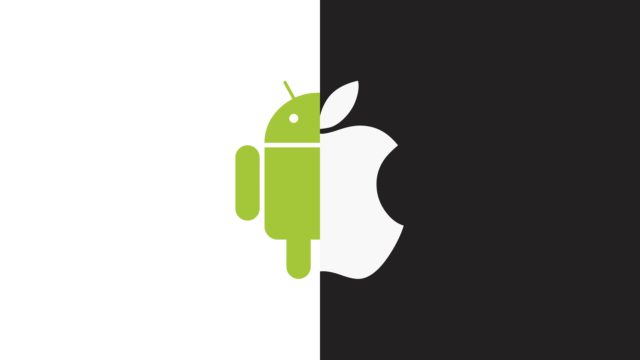Continuation of last week's material. Let's talk about how Android is gradually changing the way we work with software updates and the impact of the new approach on the user experience.

Safety
Some of the attributed Android vulnerabilities are found in the OS itself, but many more vulnerabilities Android and other operating systems are present in applications. With the ability to continually update the underlying applications, there is a chance that some of the 'holes' mentioned will be closed. Also, a significant portion of security vulnerabilities depend on the specific direction of the attack on the device. The two main vectors are email attachments and the web browser. Be that as it may, Google in terms of Gmail and Chrome has sufficient awareness of these threats and aggressively filters them out. Thus, by using updated core Google applications, you will in most cases be protected from intrusions that could harm the operating system or application with a lower frequency of updates or devices of a less attentive manufacturer.
It should be added that Android continues to develop. For example, one of the flaws material Android 4.3 mentions a serious open vulnerability. However, upon further examination of the vulnerability, you will notice that the discussed functionality in Android 4.3 has been moved to the Android WebView plugin. And here's what happens next. Plugins are updated frequently, just like the rest of the underlying software, and such vulnerabilities will not stay open for long. As such, there was a vulnerability, but today it is closed.
Android becomes modular and more and more functionality is moved outside the base OS. This trend is gaining momentum and makes updating the operating system itself less important. Of course the updates Android bring some cool features like Doze. But most people are content with all the benefits of new versions by updating the base applications, provided that the latter are supported by Google or an equally active manufacturer.
One of the consequences
Many users iOS are familiar with similar experiences. When upgrading iOS on devices from previous years, the new version 'turns' the device almost into a brick. This happened, for example, with iPhone 4S when upgrading to iOS 9. The device became so slow that the ensuing outrage resulted in a class action lawsuit. It is worth remembering that the only way to get access to new versions of pre-installed applications from Apple is to agree to install new updates iOS, even though they can potentially slow down the device. Therefore, owners iPhone can find themselves in a difficult position when trying to choose between performance and speed or application updates.

An old device based on, say, Android 4.3 is not affected by this issue. As we could see, it will receive new versions of the base applications without having to install a new OS. In theory, this practice can extend the life of a device while still maintaining an acceptable level of performance. Of course, practice shows that the Android approach to multitasking can slow down the device over time as users load it with more and more applications, many of which will actively perform tasks in the background.
Conclusion
The main idea of the material is the fact that in the situation with operating system updates, not everything is as clear and unambiguous as many interpret. Much more Android – devices in comparison with competitors from Apple work on earlier software versions. But speaking of the actual core functionality, you can see that the framework Android facilitates access to the latest versions of applications and user experience from OS updates even from previous OS versions. As a result, most of the functionality of the core applications Android will be updated more frequently than the one in iOS. This is not easy to notice, but some users will be able to verify this over time. Moreover, such an approach can smooth out the security situation Android, because applications are both sources of vulnerabilities and the main directions of intrusions, as in the case of e-mail and browsers.
The share Android has grown to impressive values and this was not prevented by the problem with updates. As this situation improves through the development of modularity Android, the popularity of the OS from Google will grow. The same Apple is already gradually coming to a certain flexibility, which proves the fact of open access to third-party keyboards, albeit with some restrictions.
Original material by Paulo Santos
A good trend: for many users, the “holy war” of operating systems has already lost its relevance. However, Google is not sitting around changing its OS with an emphasis on working on bugs, fixing vulnerabilities and smoothing out the situation with version fragmentation. In the presented material, the author, in my opinion, quite competently shows the advantages of the new model Android, which will provide even not the newest devices with the user experience of new versions. Well, it is gratifying to see changes in such an unpleasant problem for Android. Hopefully the 'childhood diseases' Android will not be 'passed on' by the upcoming Andromeda.
